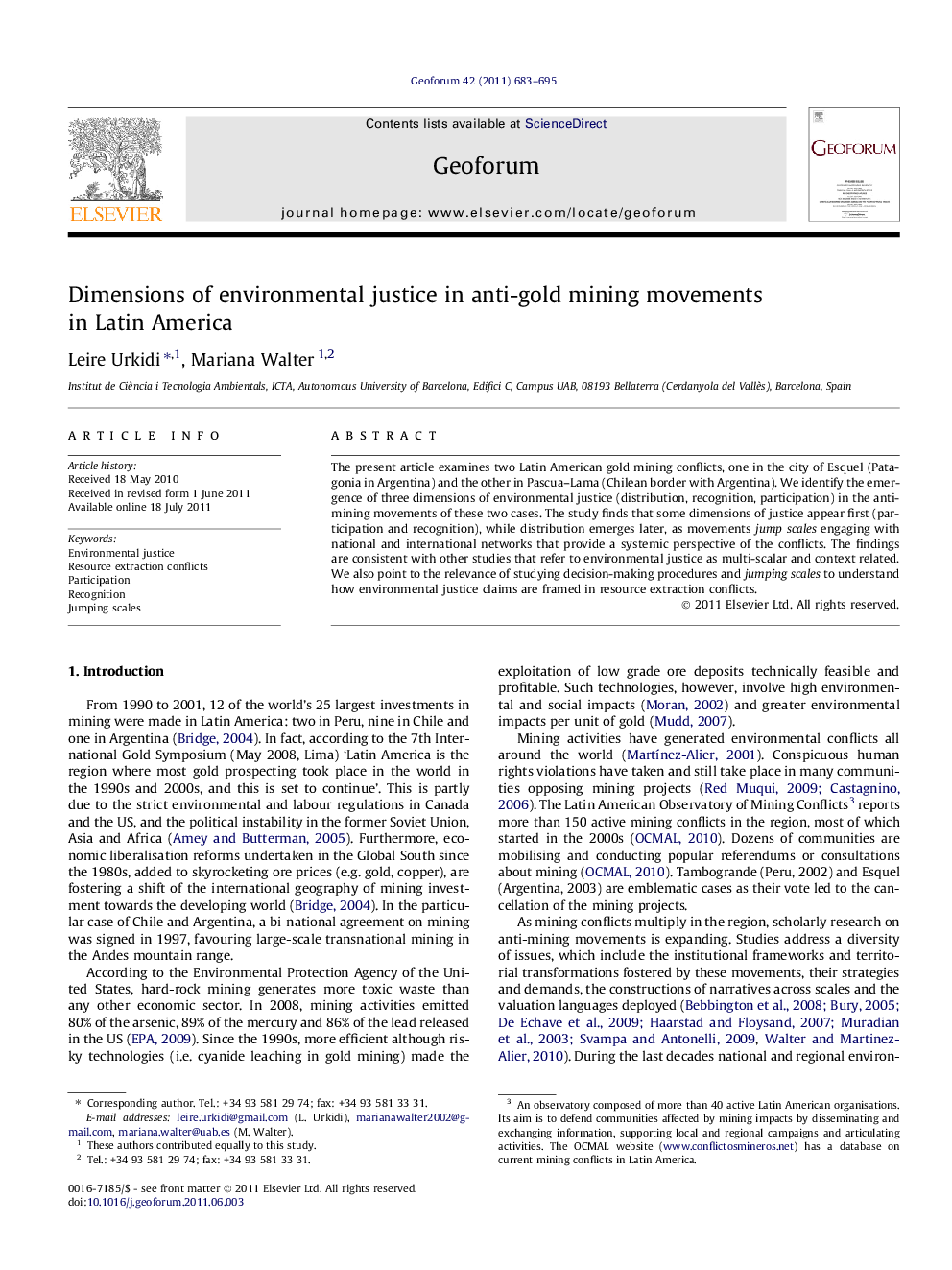| Article ID | Journal | Published Year | Pages | File Type |
|---|---|---|---|---|
| 5074353 | Geoforum | 2011 | 13 Pages |
The present article examines two Latin American gold mining conflicts, one in the city of Esquel (Patagonia in Argentina) and the other in Pascua-Lama (Chilean border with Argentina). We identify the emergence of three dimensions of environmental justice (distribution, recognition, participation) in the anti-mining movements of these two cases. The study finds that some dimensions of justice appear first (participation and recognition), while distribution emerges later, as movements jump scales engaging with national and international networks that provide a systemic perspective of the conflicts. The findings are consistent with other studies that refer to environmental justice as multi-scalar and context related. We also point to the relevance of studying decision-making procedures and jumping scales to understand how environmental justice claims are framed in resource extraction conflicts.
⺠We analyse two anti-gold mining movements in Argentina and Chile. ⺠Local movements deployed environmental justice claims. ⺠First protests were mainly about recognition and participation. ⺠Distributive concerns arose during the development of the conflict. ⺠Decision making procedures and jumping scale processes fostered this change.
